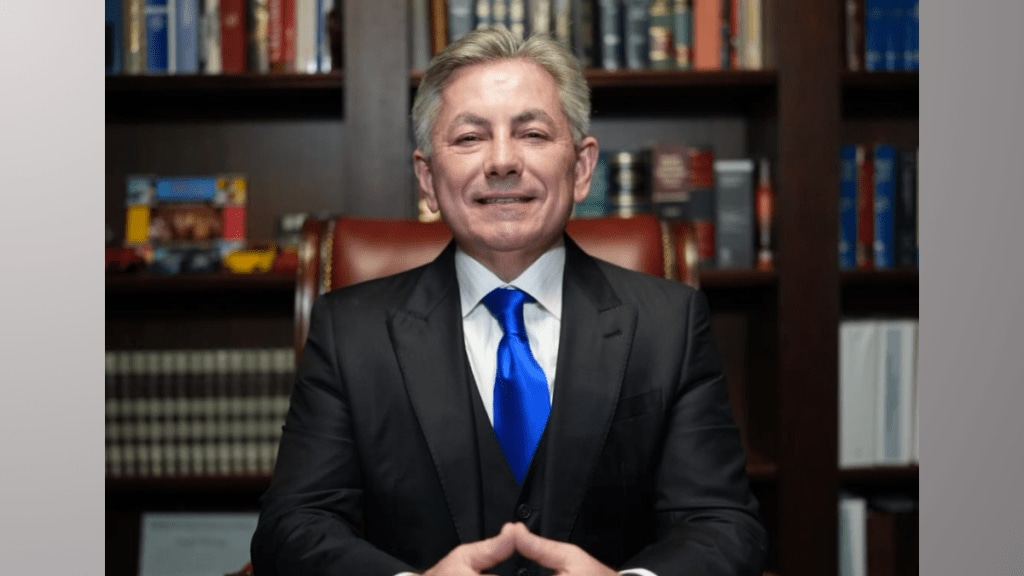By Joseph Dedvukaj
As an attorney who has spent more than 30 years in the trenches of personal injury law, I’ve seen how devastating a car accident can be—not just physically, but emotionally, financially, and spiritually. For Michigan’s growing Indian American community, the aftermath of such trauma is often compounded by a deep unfamiliarity with the legal system and a cultural hesitation to seek legal recourse. That’s not just unfortunate—it’s unjust.
I know this not just from legal cases, but from lived experience. As a first-generation Albanian-American immigrant, I understand what it means to start over in a new country, to navigate systems that aren’t designed with your culture, language, or lived reality in mind. That’s why I’ve made it my mission to offer more than just legal representation. I offer guidance that meets people where they are, in a language—literal and cultural—that resonates.
Michigan is home to a vibrant and diverse Indian American community—comprising engineers, doctors, small business owners, IT professionals, and families working hard to build their version of the American dream. But too often, that dream is interrupted by an accident—and worse, by a system that doesn’t communicate clearly, or fairly, what a victim is entitled to.
Let me be blunt: too many Indian American families are being shortchanged.
Many don’t realize how much Michigan’s no-fault insurance law actually entitles them to after a crash. Others feel intimidated by legal jargon or simply assume that accepting the first settlement offer is the quickest way to “move on.” I’ve seen it happen time and again—people walking away with a fraction of what they deserve because they didn’t have the right information or the right advocate.
We don’t let that happen at my firm. We educate. We investigate. We push back—hard—when insurers undervalue claims. And we don’t stop until justice is served.
But numbers alone don’t define our work. Sure, our firm has recovered over $300 million in settlements and verdicts, but behind every case is a person—and behind that person is a family whose life has been upended. That human impact is what guides our culturally sensitive approach, especially when working with Indian American clients who may face unique challenges: language barriers, multi-generational household responsibilities, or a reluctance to “make a fuss.”
Legal help shouldn’t be intimidating. It shouldn’t feel like a luxury. That’s why our firm operates on a contingency fee basis—no win, no fee. We also make sure our staff and resources are accessible: bilingual team members, interpreters when needed, and patient, step-by-step explanations of every part of the legal journey.
But our commitment doesn’t stop at the courtroom door. My team and I are out there in the community—attending Diwali festivals, setting up booths at health fairs, and holding free workshops on what to do if you’re in an accident. Because knowing your rights before you need them? That’s real empowerment.
And frankly, that’s the kind of legal advocacy immigrant communities have lacked for too long.
Legal support should never feel transactional. For me, it’s personal. I know what it’s like to have to fight harder for the same recognition and respect. I see the same resilience in the Indian American families I work with—families who value education, responsibility, and unity. When their world is shaken by an accident, they don’t just need an attorney. They need someone who listens, explains, and most importantly—understands.
Recognition, like the 2025 Evergreen Award for “Best Car Accident Lawyer in Michigan,” is an honor. But for me, the most meaningful recognition is when a client says they felt safe, respected, and protected throughout the process. That’s the real win.
As Michigan grows more diverse, our legal systems—and the professionals within them—must evolve too. That means going beyond boilerplate services and embracing culturally attuned, empathetic representation. Because when families face one of the most vulnerable moments of their lives, they don’t just need a lawyer. They need an advocate who gets it.
And I’ll continue to be that advocate—for every family, every community, and every client who deserves more than just a legal outcome. They deserve clarity. They deserve care. And above all, they deserve justice.
Views expressed are the author’s own and not necessarily those of financialexpress.com


